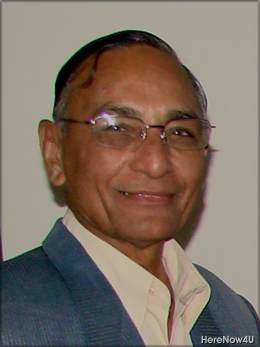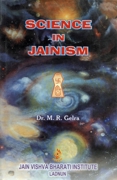
The contribution made by German Indologists in the field of Jain studies is tremendous. Their contribution is one and half Century old now arousing our curiosity to know about it in details. In the sixties of nineteenth Century, a German scholar, Georg Buehler, who served the then Indian Government, was sent out to collect manuscripts. At the same time a young German Indologist, Hermann Jacobi, came to India for a tour of the country. Buehler made his plans known to him and accompanied him in his search for manuscripts. Both of them went together among others to a famous fort of Jaisalmer. Perhaps they were the first westerners to visit that town.
Georg Buehler while collecting manuscripts obtained permission from the Indian Government to collect duplicates and hand them over to the Berlin library. In this way a rich collection of Agamas and other works reached Berlin and they were taken care of leading Indologist of that times, Albrecht Weber. In his painstaking work of many years, he immersed into the then almost impossible jungle of entire scriptures. And Prakrit knowledge was then very limited and Jain manuscripts were practically unknown till then. He prepared magnificent catalogue of those manuscripts. In its foreword he writes, "The good deal of my power of vision is carried in them" With the help of that catalogue he gave the first summary of the canonical Agama and initiated Jain studies in Germany.
However, the first translations of Jain sources into German date back to the middle of the nineteenth Century when Otto von Boehtlingk published a German Version of Hemacandra's Abhidanacintamani (1848). Albrecht Weber published some parts of Satrunjayamahatmya (1858) and Bhagwati (1866). Albrecht Weber was a genius par excellence and almost unbelievable diligent. At time's when editions of Indian texts were still very rare, he read innumerable manuscripts and contributed more than any other Western scholar to the early knowledge of Indian literature. From Georg Buehler he had received a large number of Jain manuscripts, mostly from Gujarat. On their basis, A. Weber was able to present an almost complete survey of the canonical literature of the Svetrambara sect of the Jain Community. After these beginnings, and encouraged by A. Weber, several German scholars set to work on the Jain writings. We should particularly mention Ernst Leumann (1859- 1931) and H. Jacobi whose works on Jainism are the most important in the early period.
In the eighties, Jacobi translated two volumes in the series of sacred books of the east. The uttradhyayana, the acharanga, the suyagaanga and the kalpa sutra and part of them also he edited. First of all was the acharanga, first critical texts editions were made in Europe and thus Jain studies began. These were real pioneers in then almost unknown field of studies and it must particularly be recorded that Weber was still of the opinion that Jainism was but a sect of Buddhism. The opinion was widespread that the Jainism was nothing but an offshoot of Buddhism, and it was Hermann Jacobi who definitely proved that this was not the case and Jainism was an old religion, as old as or perhaps even older than Buddhism. Jacobi convinced western scholars that Buddha and Mahavira lived at approximately the same period. In 1948 the Jain Community in India has gratefully acknowledged its debt to H. Jacobi and published collection of his articlesunder the title 'Studies in Jainism'. Jacobi was responsible for many text editions also of non-canonical later works. For example, Haribhadra's famous novel of Samaraichchkaha (1921), upamitibhaua prapanchakatha of siddharshi etc. These voluminous works are all in careful critical editions and most of them are published in India, with long introductions and English summaries facilitating their use by western scholars.At the same time, Ernst Leumann worked on Jain studies. He was of Swiss extraction but he always worked in Germany, so that it was sometimes almost forgotten that he was not really a German but a Swiss German-speaking Swiss. Leumann did a lot of pioneering work. He edited Uvavai sutta and the JiyaKappa and particularly he did splendid spadework on what he called the Avasyaka Erzealong or literature. At his time very few texts were printed and he succeeded in getting through Strassberg where he was then working among magnificent collection. Leumann did what was almost unbelievable. He explored the whole literature then absolutely unknown only from manuscripts without the help of any printed books. He made some very good text editions but could only begin this work. He had to leave unfinished, when he died in 1930. Sanskrit department in Hamburg University preserves all the papers left by him. Many of them already used by now and still more awaiting to be taken out of the big almirahas which they fill completely.
One of his life events shows his remarkable achievement though it has nothing to do with Jainism. In the first years of twentieth Century, Sir Aurel Stein explored in Eastern Pakistan and brought from the sands of the desert, block prints and manuscripts partly of the Sanskrit work of the highest value for the literary history of India but partly also of manuscripts and block prints in an Indian Scripts in Brahmi but a totally unknown language. There was then the International Congress of Orientalists in Copenhagen and Stein made a brief report to that Conference about his discoveries and findings and Leumann asked him to lend him some of these manuscripts in unknown language, to his hotel. In one single night he succeeded in deciphering enough to prove that this was the new Aryan language and he could even make the first speech on them on this congress, an almost unbelievable feat.
 Dr. Mahavir Raj Gelra
Dr. Mahavir Raj Gelra

